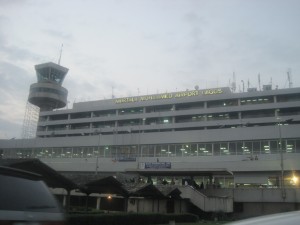Teaching English in a Nigerian school is almost the equivalent of teaching Yoruba in an American university. The difference, of course, is that while English is a language spoken already by all the students here, Yoruba – to the Americans – is a totally new language which students were being exposed to for the very first time. The similarity of the experience is that on some level, English can also be taught as a foreign language.
It helps that the teacher spent the last two years as a student of Teaching English as a Second Language (TESL), and with a background in Linguistics. It also helps that the masters thesis written in the last days of studentship in the Graduate School had something to do with the performance of students learning a phonological characteristic of a second language. In that sense, there is a feeling of homeliness to this experience, and a certain familiarity with what to expect.
What is different, but not altogether surprising, is the attitude of the students themselves. Whereas in the earlier experience, the youngest member of the class is usually at least eighteen years old, and an undergraduate, here, the oldest member of the class is sixteen, and has probably not yet decided what he wants to do with his life. The challenge is in the balance of expectations and attitude. Boys at sixteen usually have nothing more to worry about than food, peer pressure, and play. It is the teacher’s job to put as much work and discipline as necessary into their restless brains within a forty minute teaching period.
Like in the United States, teachers are not allowed to use corporal punishment on these students. A friend of mine in a school in Illinois had his students put hand sanitizers in his water while he was out of the class. He had drunk it before he realized it. I have not had (and by all appearances would never have) any such experience here, but that contrast is necessary to explain the setting and patterns of behaviour of students in the two different environments. The biggest challenge in dealing with young high school students of this particular age (and in an all-male school) is to sustain their attention and interests long enough to prevent a breakdown of order in such a testosterone-filled environment.
It is a welcome challenge.


